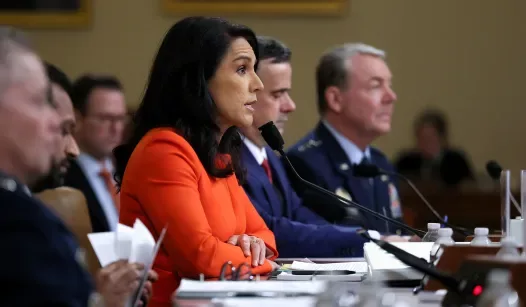The establishment of the Office of the Director of National Intelligence (ODNI) was a significant shift in the U.S. intelligence community, intended to enhance coordination and oversight among various agencies. However, many argue that the creation of this office has not achieved its intended goals and that it may have even complicated the intelligence landscape. As discussions about reform and efficiency gain momentum, it’s essential to explore the potential for streamlining and reorganizing the ODNI to better serve national interests.
The ODNI was created in response to the intelligence failures leading up to the September 11 attacks, aiming to unify the disparate agencies under a single umbrella to prevent future lapses. While the intention was noble, the reality has been mixed. Critics point out that the ODNI has often been perceived as an additional layer of bureaucracy rather than a solution to the coordination issues it was meant to address.
One of the primary concerns is the size and scope of the ODNI. Over the years, the workforce has expanded significantly, leading to questions about efficiency and effectiveness. A leaner, more focused approach could allow for quicker decision-making and better resource allocation. Streamlining the workforce would not only reduce costs but also help eliminate redundancies that have crept into the system over time.
Moreover, the intelligence community is facing new and evolving threats that require agile responses. The rise of cyber threats, disinformation campaigns, and global geopolitical shifts necessitates a more dynamic and responsive intelligence apparatus. Reforming the ODNI could enable it to adapt more swiftly to these challenges, ensuring that the U.S. remains secure in an increasingly complex world.
In addition to workforce reductions, there is a pressing need for a cultural shift within the ODNI. The intelligence community must foster an environment that encourages collaboration and innovation. This could involve breaking down silos between different agencies and promoting a culture of shared information and resources. By fostering greater inter-agency cooperation, the ODNI can enhance its effectiveness and better serve national security interests.
Furthermore, accountability is a critical component of any reform efforts. The ODNI must be held accountable for its actions and decisions, ensuring that it operates transparently and effectively. Establishing clear metrics for success and regularly reviewing performance can help ensure that the office remains focused on its core mission.
As the debate around the future of the ODNI continues, it is crucial for policymakers to engage with experts, stakeholders, and the public. Open discussions can help identify the most pressing issues and potential solutions, paving the way for meaningful reform. The goal should be to create an intelligence community that is not only efficient but also responsive to the needs of the nation.
In conclusion, while the creation of the Office of the Director of National Intelligence was a significant step in the evolution of the U.S. intelligence community, it is clear that reforms are necessary to address the challenges and inefficiencies that have emerged. Streamlining the workforce, fostering a culture of collaboration, and ensuring accountability are essential steps toward creating a more effective intelligence apparatus. As we move forward, it is vital to prioritize these reforms to enhance national security and better protect the interests of the United States in an ever-changing global landscape.
